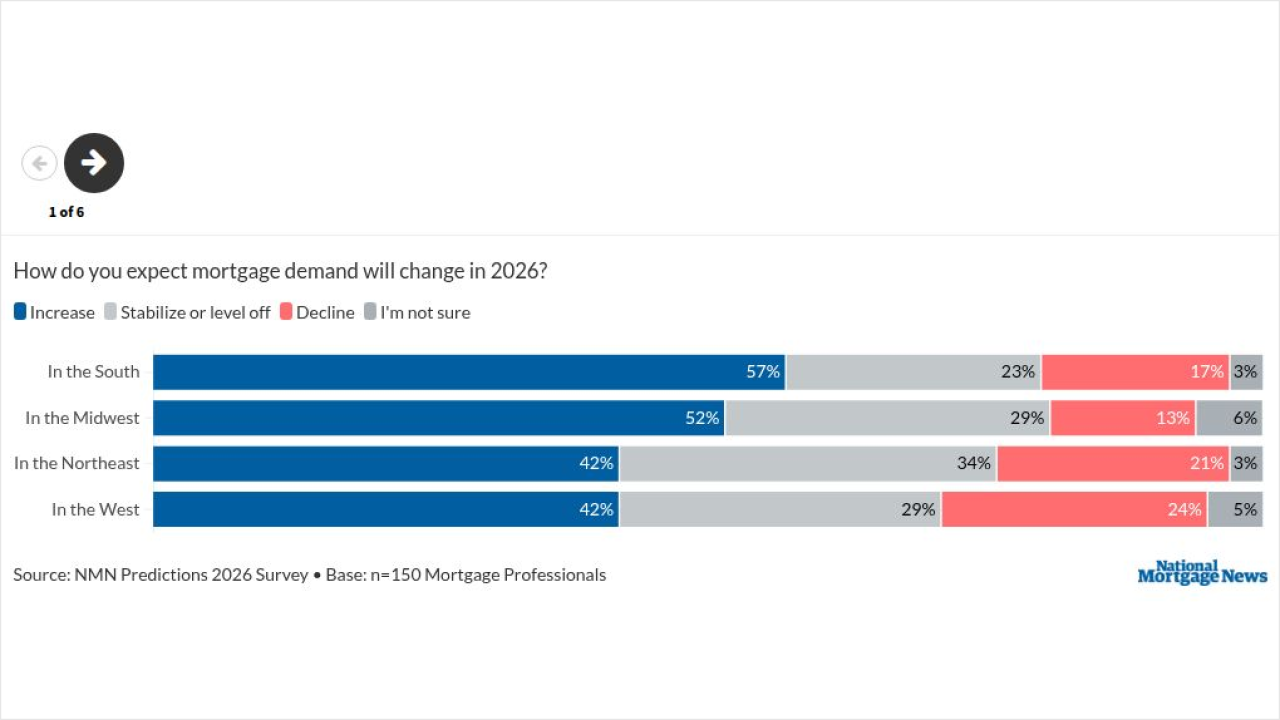The Department of Veterans Affairs is preparing a new program to extend the loss mitigation waterfall for its borrowers, one of a slew of initiatives the government agencies are readying for the industry.
Leaders for the Federal Housing Administration, Department of Veterans Affairs and the U.S. Department of Agriculture described their efforts Tuesday at the Mortgage Bankers Association's Secondary and Capital Markets Expo in New York City. The plans are geared toward keeping both borrowers and servicers engaged in a market that is down
The VA will introduce a new Servicing Purchase Program in July. It's a new way of making a "last-ditch effort" in the waterfall to keep veterans in homes, said John Bell III, executive director of the agency. Through the initiative, the VA will take a loan back, pay and make the servicer whole, and put the borrower on an interest rate that's not available in the marketplace, he explained.
"We'll have our regular refund, we'll have our regular loss mitigation waterfall efforts," said Bell. "But we know with rates where they are, versus borrowers where their interest rates are, that the waterfall isn't as helpful as it should be. So we need to relook at what we can do from that waterfall perspective as well."
Meanwhile, the director stated that 55% of VA borrowers are exempt
The USDA is leading two pilot programs, expected to begin in October, to serve borrowers on tribal lands. The agency will allow desktop appraisals for homes on tribal lands and for its own internal appraisers to work with tribal leaders to do a cost analysis. The move both addresses the
"Their complaint was that as lenders you would have to get, if you were doing a loan in South Dakota, you would have to get an appraiser from Texas who really didn't understand the tribe and the tribal land and how the value is," she said.
The other pilot will allow tribal homeowners to use one of the agency's purchase programs to get cash out of their property to make improvements to their domiciles. Tribal homes are inherited, giving residents no other way to get cash out of them, Ripley said.
The agency is also extending its loss mitigation efforts to tribal lands borrowers with a memorandum of understanding with tribal housing authorities, to smooth over servicing for those loans which head into foreclosure.
"Their biggest concern is that we get the loan and then you can put someone else that is not a tribe member in the house," said Ripley. "They want it to be maintained for the tribe because they have a list of people that are in line to be able to get some of these homes."

The Federal Housing Administration meanwhile is mulling several updates, none of which however have a set deadline for action. It's currently reviewing the 234 comments it received since February regarding
The FHA also continues to weigh a policy that would allow borrowers to count rental income for
Edelman highlighted some of the agency's victories this year, including the



